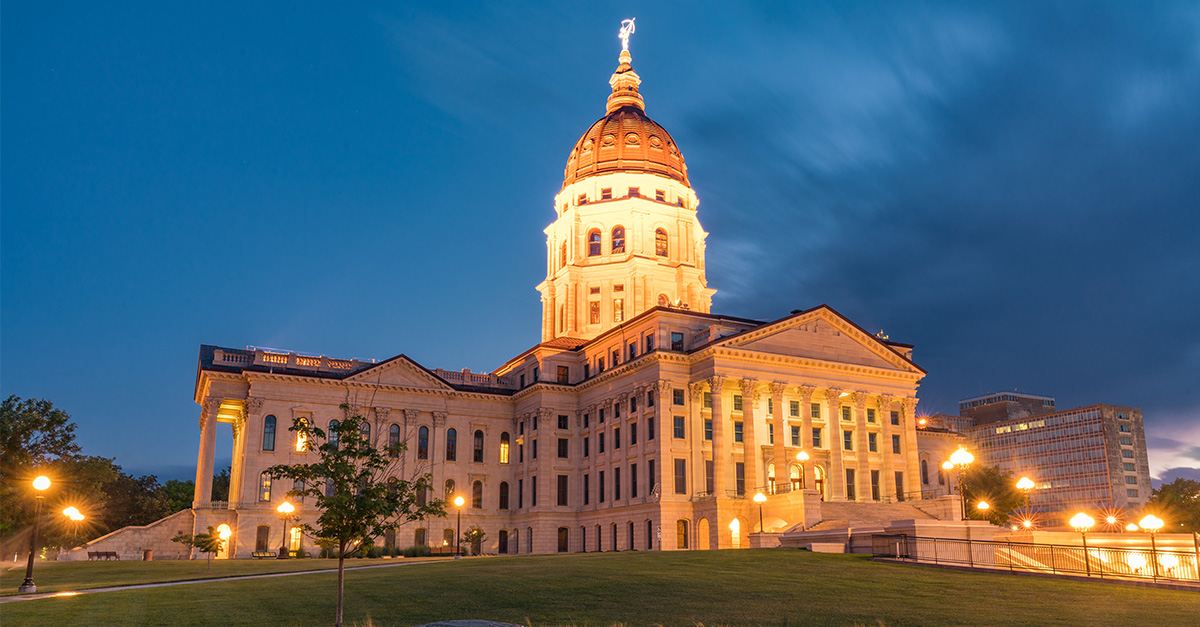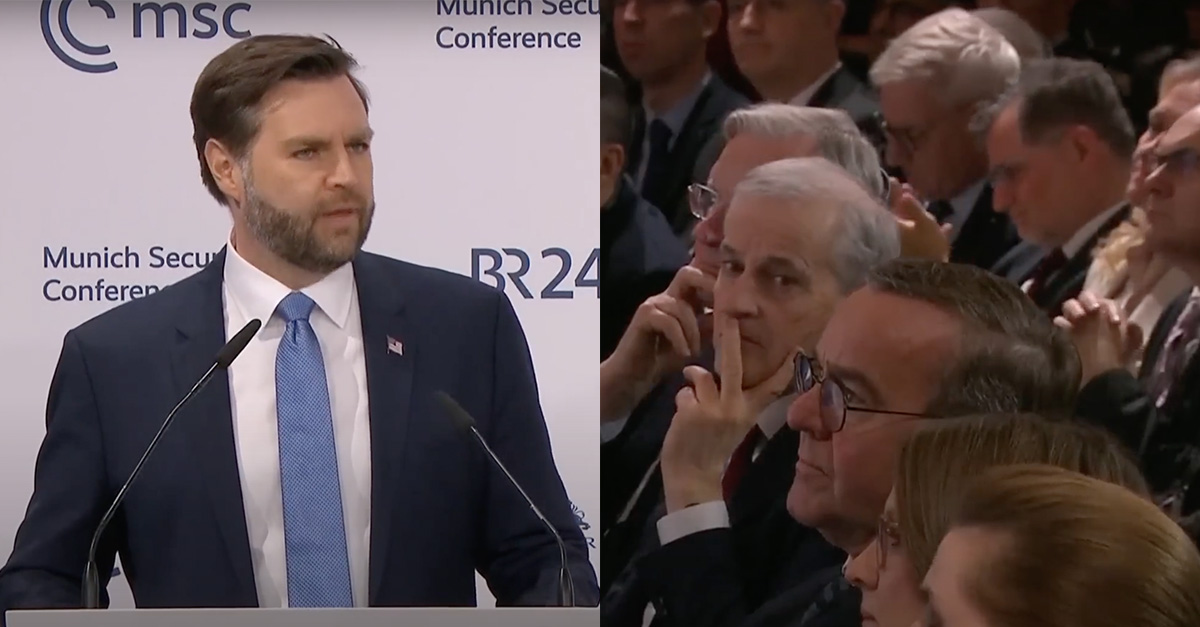


Get a free copy of Parental Rights & Education when you subscribe to our newsletter!

With this action, Kansas is now the 27th state to ban doctors from treating minors confused about their identity with experimental drugs and surgeries.
[UPDATE] Kansas Republicans yesterday successfully overrode Democratic Gov. Laura Kelly’s veto of a bill that prohibits irreversible transgender medical procedures for minors.
The new law, known as the “Help Not Harm Act,” bars doctors from performing transgender surgeries on minors or prescribing cross-sex hormones and puberty blockers. This marks a shift from last year when Republicans fell short in their attempt to override Kelly’s veto of a similar bill.
“Today, we sign the Help Not Harm Act in honor of the children who Governor Kelly failed to protect with her repeated vetoes of this sensible legislation,” Senate President Ty Masterson and House Speaker Dan Hawkins said in a statement.
“With help from Kansas voters last fall, we were able to override her veto and protect Kansas children from these harmful, irreversible, and experimental gender-reassignment surgeries and medicines. We are so thankful to everyone who made this victory for common-sense possible.”
Notably, the legislation was opposed by every Democrat in both the Kansas Senate and House, alongside Republican Rep. Mark Schreiber. Two House Republicans were absent for the vote.
U.S. Sen. Roger Marshall, R-Kansas, who has introduced similar legislation in that would ban transgender procedures on minors nationwide, weighed in on the override by posting, “Despite Kansas Governor Laura Kelly’s best efforts, the mutilation and sterilization of minors will not happen in Kansas. Praise God!”
Gov. Kelly’s responded to the override of her veto by saying, “It is inappropriate that the Legislature dictate to parents how to best raise their children.”
She added,
“It is unfortunate that the first bill the Legislature sent me this session is focused on putting politicians between Kansans and their private medical decisions instead of prioritizing solutions to issues like rising prices and the cost of groceries, which would benefit everyone. This divisive bill will undoubtedly have ripple effects that harm Kansas families, our businesses, and our economy and intensify our workforce shortage issue.”
The law will take effect on Thursday, Feb. 20, after it is published in the Kansas Register, the state’s official newspaper.
The legal battle may soon continue in the state’s courts, according to Democratic House Minority Leader Brandon Woodard.
“I feel very confident in the fact that we do have three branches of government, so one is signed off on it, one the other branch said no, and so now the third branch will very likely have their opportunity to take a look at the constitutionality of this bill,” Woodard wrote.
With this veto override, the Kansas Help Not Harm Act is now the 27th state law in the U.S. that bans transgender treatments in minors. The constitutionality of such laws has already been argued before the U.S. Supreme Court, and a decision in the case of United States v. Skrmetti is expected in late spring.
{Published on February 12, 2025} Kansas Gov. Laura Kelly, D, on Tuesday vetoed the Help Not Harm Act, which aimed to prohibit doctors from prescribing so-called gender-affirming treatments to children and teens.
The move comes just two weeks after President Trump signed an executive order ending federal support for transgender healthcare.
The Kansas bill, also known as S.B. 63, overwhelmingly passed the Kansas legislature, with the Senate voting 32-8 and the House 83-35 in favor of it.
Kelly said she based her decision on privacy, parental rights, and economics. “It is disappointing that the Legislature continues to push for government interference in Kansans’ private medical decisions instead of addressing issues that benefit everyone in our state,” she stated, adding that “Undermining parental rights is not acceptable and goes against Kansas values. As I’ve stated before, politicians should not come between parents and their children when it comes to medical decisions. This bill would also push families, businesses, and healthcare professionals out of Kansas, weakening our economy and worsening workforce shortages.”
The Help Not Harm Act would have prohibited minors from receiving puberty blockers, cross-sex hormones, and surgeries as treatment for gender dysphoria. The bill included a provision allowing children already undergoing hormone therapy a transition period to gradually discontinue use. Similar legislation has been enacted in 22 states, though the judicial review on the constitutionality of those laws has been mixed. Clarity on whether the state has an interest in protecting minors from medical treatments that are unproven and irreversible is expected from the U.S. Supreme Court this spring.
The Kansas House vote on Tuesday was one vote short of the two-thirds majority that would be needed to override the veto, though four Republicans and three Democrats legislators were absent that day.
Senate President Ty Masterson, R, however, indicated that the Senate would act quickly to override the veto, stating that they would do so “before the ink from her pen is dry.”
Kansas House Speaker Dan Hawkins, R, also said that House is prepared to override the veto, explaining in statement that Kelly “has officially chosen partisan politics over all logic and reason to protect our Kansas kids. They are not equipped to be making these life-altering decisions through harmful and irreversible surgeries and medicines.”
Democrats supporting the governor’s veto have argued that the bill involved the government in personal healthcare situations that are against the values of the state’s residents.
“This bill inserts politicians into highly personal, private health care situations, and that is against the values of Kansans,” state Sen. Cindy Holscher, D, said in January.
Brittany Jones, director of policy and engagement at the Kansas Family Voice, a pro-family organization supporting the Help Not Harm Act, advocated for lawmakers from both parties to unite, calling on them to quickly override the governor’s veto.
“Kansas children deserve better than harmful experimentation and life altering procedures. This bill merely regulates a medical procedure which is well within the legislature’s jurisdiction,” Jones wrote in a statement.
“Though expected, we are disappointed that Governor Kelly once again vetoed Help Not Harm, putting ideology over the wellbeing of children. Diverse voices are consistently speaking out against these harmful procedures. It is long past time that we protect Kansas kids from these experiments. We call on our Legislature to immediately step up and protect our children,” she added.
The executive order signed by President Trump on January 28 reiterated the harm that these medical procedures inflict on minors by stating:
“Countless children soon regret that they have been mutilated and begin to grasp the horrifying tragedy that they will never be able to conceive children of their own or nurture their children through breastfeeding. Moreover, these vulnerable youths’ medical bills may rise throughout their lifetimes, as they are often trapped with lifelong medical complications, a losing war with their own bodies, and, tragically, sterilization.”
The president’s order ends federal tax dollars from being used for minors to obtain sex change procedures or puberty blockers but does not end the practice for all minors nationwide.
Tennessee and Kentucky passed similar laws to the Help Not Harm Act vetoed in Kansas. The Biden administration challenged the constitutionality of those laws, arguing that they violate the Equal Protection Clause of the 14th Amendment, and appealed it to the Supreme Court. The justices heard oral arguments in December and indicated that they are likely to uphold the states’ bans on youth transgender care.
Last week, the Trump administration notified the Supreme Court that it is no longer backing the plaintiffs challenging the law in the case of United States v. Skrmetti. “The government’s previously stated views no longer represent the United States’ position,” stated Curtis E. Gannon, a deputy solicitor general, in a letter sent on February 6.
Since other parties are still contesting the Tennessee and Kentucky laws, the Supreme Court is still expected to issue a ruling this summer. Their decision is likely to represent a major shift in the ongoing nationwide battle taking place at the state level.

Gov. Kelly may not realize it, but she is on the wrong side of this issue in three critical areas: Scripture, science, and support.
First, Scripture provides a clear foundation for understanding gender as a divine creation. Genesis 1:27 states, “So God created mankind in his own image, in the image of God he created them; male and female he created them.” This verse affirms that gender is not a personal choice but a God-ordained reality. Throughout Scripture, the distinction between male and female is upheld as part of God’s perfect design.
Jesus reinforces this in Matthew 19:4, emphasizing that “from the beginning, the Creator made them male and female.” Christians are called to love and care for all people, but love does not mean affirming something that contradicts God’s truth nor does it call us to affirm someone in their delusions. Instead, believers should offer compassion while standing firm on biblical principles.
Second, science aligns with the biblical view of gender. Biological sex is determined at conception and is encoded in every cell of the body. No amount of medical intervention can change a person’s DNA.
Studies also show that most children experiencing gender dysphoria eventually come to accept their biological sex if not pushed toward medical transition. Medical treatments such as puberty blockers and cross-sex hormones carry significant risks, including infertility, bone density loss, and heart complications, and the surgeries do nothing but mutilate otherwise healthy bodies. Christians should advocate for truth-based healthcare that prioritizes long-term well-being.
Finally, societal support reflects growing opposition to transgender medical interventions for minors. Polls show that a strong majority of Americans oppose such treatments for children. This widespread concern highlights the need for protective policies that prevent irreversible harm. Christians should work to ensure that policies align with both scientific evidence and biblical truth while extending love and guidance based on reality to those struggling with gender confusion.
If you like this article and other content that helps you apply a biblical worldview to today’s politics and culture, consider making a donation here.

Notifications